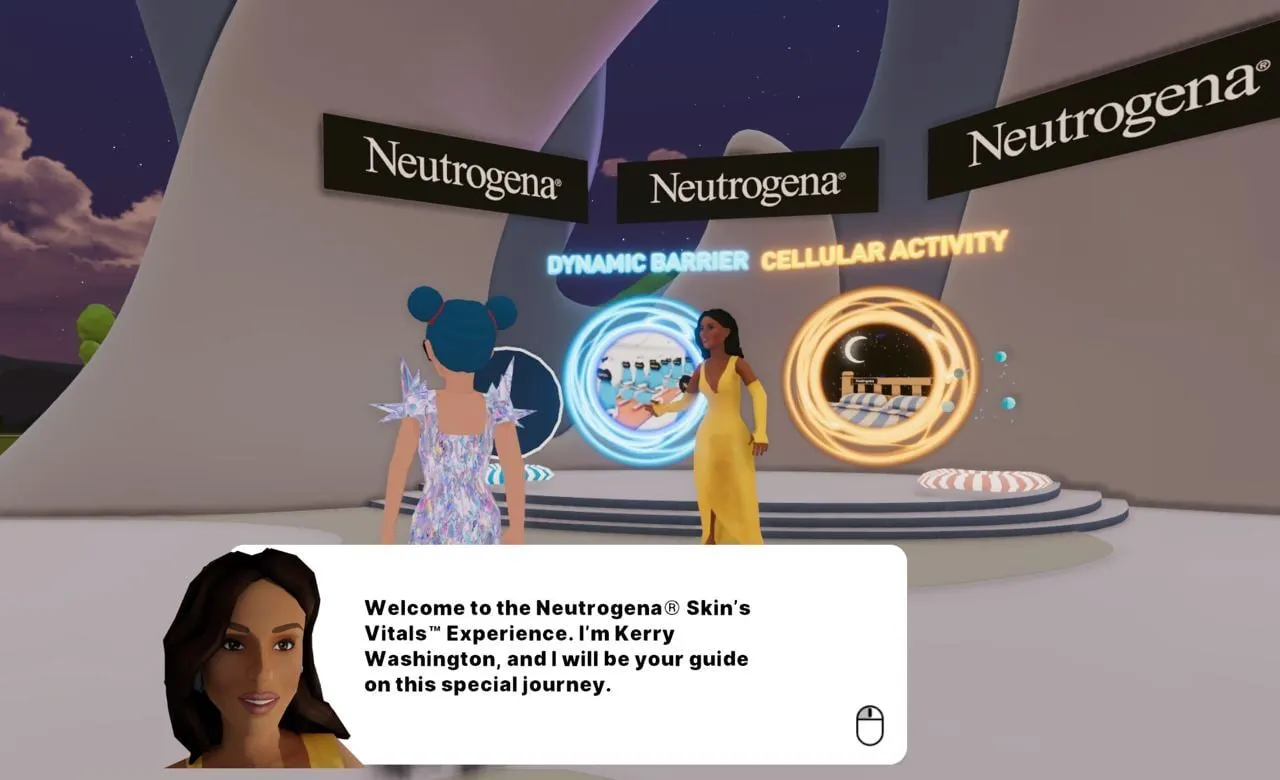In April, the second-ever Metaverse Fashion Week saw attendance plummet by a dramatic 92%, amid souring public perception of immersive virtual realms and an enduring crypto bear market.
In just the last week, however, the staying power of immersive Web3 experiences has been bolstered by a series of announcements from heavyweight consumer brands.
Apple’s reveal last Monday of its new mixed reality Vision Pro headset ignited metaverse discourse with a vigor not seen in over a year. That same week, French luxury mainstay Louis Vuitton committed to a long-term Web3 presence targeted at high-impact customers.
Meet Nya during @metabeautyweek
Nya is the guide to giving reality a makeover. Conceived to delight the senses in a multiversal experience of beauty like never before, that redefines real-world limitations and opens the doors to limitless possibilities of self-expression #MBW23 pic.twitter.com/BitEPRF1sI
— Decentraland (@decentraland) June 10, 2023
Hoping to keep that rejuvenated metaversal flame alive is Metaverse Beauty Week, a five-day event beginning Monday, engineered by creative agency Cult, that seeks to bring cosmetics brands into the metaverse. In the process, it aims to showcase the value to consumer brands of establishing immersive and creative virtual marketing presences.
Just as with Metaverse Fashion Week (MFW), MBW will host most events on Web3 metaverse platforms Decentraland and Spatial. This event will also, however, feature programming within Roblox, the wildly popular Web2 online gaming platform.
That’s no small addition. For context, Web3-native metaverse platforms like Decentraland claim to average 10,000 users a day; for Roblox, that figure is closer to 66 million.
MBW visitors will be able to traverse virtual, beauty-themed pop-up games and experiences across Decentraland, Spatial, and Roblox for the entirety of this week. As with MFW, Spatial and Decentraland will be interoperably connected by portals connecting the two worlds. As Roblox is a closed, off-chain platform, visitors will have to access it separately.
Participating beauty brands with presences across the three platforms include Neutrogena, British cosmetics brand Lush, luxury department store Flannels, and Spanish cosmetics brand Clementine, among others.
Whereas the connection between the metaverse and fashion is fairly literal and intuitive—animated avatars can sport animated outfits inspired by real-life brands—bringing cosmetics to the virtual realm is a bit more abstract an endeavor. That’s an opportunity for brands to get creative, according to Kim Currier, Decentraland’s head of marketing.
“This can be a little bit more esoteric, or dreamlike, in choosing how beauty translates,” Currier told Decrypt. “How can you translate your brand and what it stands for into the metaverse in a way that isn't necessarily physical?”

Neutrogena, for example, has partnered with actress Kerry Washington to create a series of immersive games inside Decentraland, designed to convey the experience of using the company’s cosmetic products—and perhaps land some marketing messages along the way.
MBW visitors can accompany a virtual incarnation of the Scandal star into an empty airplane, for instance, and hunt there for hidden containers of Hydro Boost Moisturizer (essential for travel). They can also follow the Emmy-nominated actress into a surreal, spacelike cosmos, where they must—on a giant floating bed—dodge asteroid-like coffee cups and smartphones in pursuit of a packet of Cleansing Makeup Removing Wipes (key to a good night’s sleep).
If such interpretive experiences prove a success with participants, then perhaps they will substantially broaden the potential for metaverse installations to attract the interest of any number of consumer brands, not just those with obvious tie-ins to an online, avatar-populated ecosystem.
Candy brands, car companies, even household cleaning supply makers could express their interpreted brand identities in a creative format that has already proven, at least in the luxury space, to captivate consumers for several minutes at a time—a near-unheard-of metric in advertising.
“That's something that's hard to replicate as a brand,” Decentraland’s Currier said. “How often is your target audience engaging with your content for more than two seconds, if you can even get them to stop their thumb on a TikTok?”
MBW runs through the week, with in-person events in London wrapping the event on Friday.

